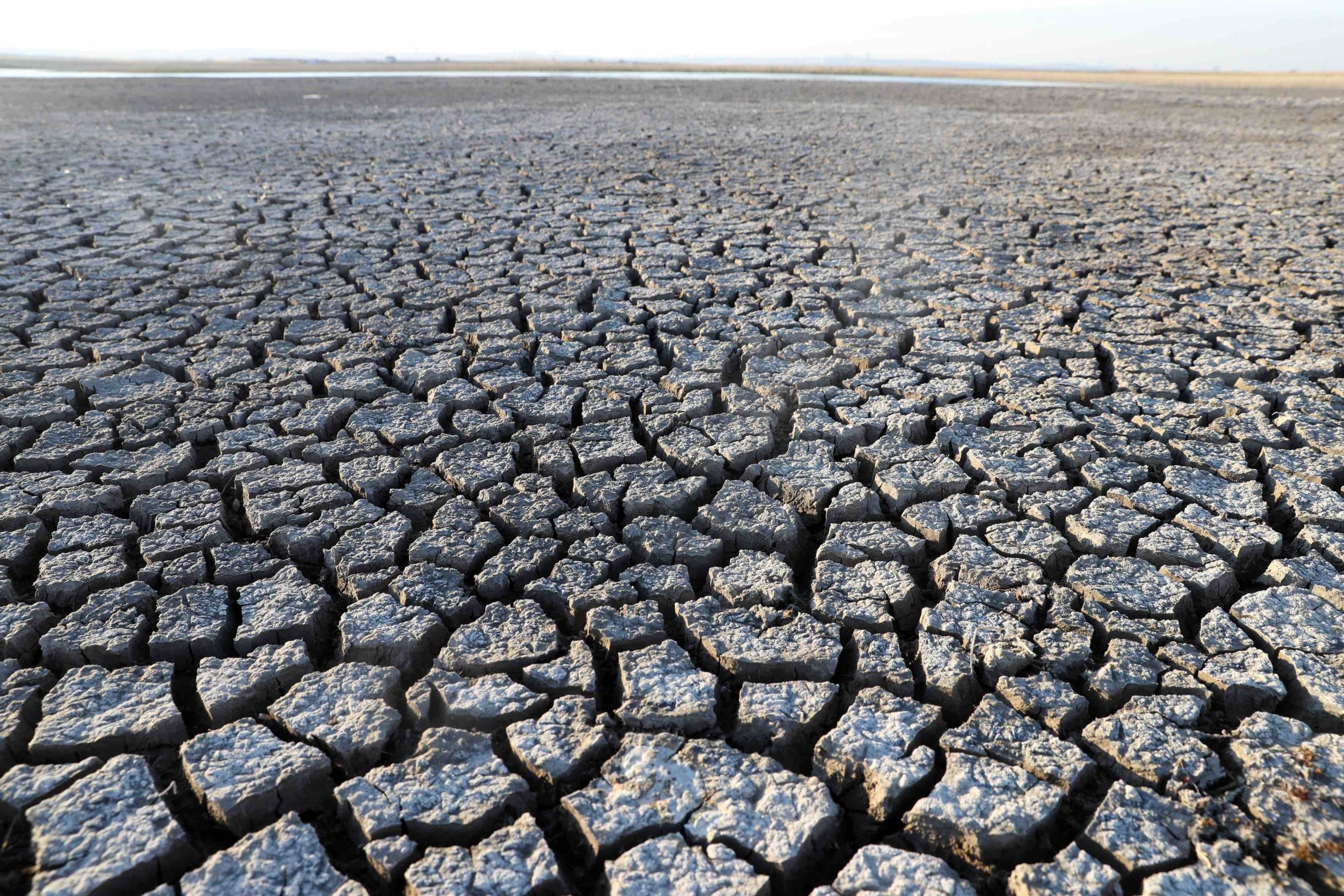Mayors of the largest cities in Turkey are concerned by the lack of rainfall since the summer, which has led to very low water levels in dams and raised concerns that drinking water will become scarce and agriculture impacted.
Izmir mayor Tunc Soyer last month said that he wasn’t getting much sleep due to falling water levels in the dams, and Ankara’s mayor, Mansur Yavas, issued a warning to the public to not waste water.
The drought is visible in western and central parts of Turkey, where rainfall dropped nearly 50 percent in November year on year, according to the general directorate of meteorology’s reports.
‘If the trend continues like this, next year we will see huge drops of flow rates in rivers and lakes’
– Orhan Sen, academic
Agriculture and Forestry Minister Bekir Pakdemirli on Sunday confirmed that 2020 had been the driest year of the past five, but said that he was certain that the cities had enough resources to get through until next summer.
Dams in Istanbul are only 24 percent full, which would be enough to pump water to the city of 16 million for nearly two months.
Ankara is more fortunate, with its smaller population of five million, and has water for four and a half months.
Izmir, on the other hand, has dams that are 37 percent filled. Pakdemirli said the water would be sufficient for the port city for more than five months.
Orhan Sen, a professor of meteorology engineering, said in a Turkish TV interview that drought had been gradually increasing throughout the year and had intensified in the last three months.
“The coronavirus pandemic has also increased water consumption by nearly 20 percent, because people use more water for cleaning,” he said. “If the trend continues like this, next year we will see huge drops of flow rates in rivers and lakes.”
Agricultural concerns
Several reports suggested farmers had also been impacted by the drought.
Baki Remzi Suicmez, president of the Chamber of Agricultural Engineers, said earlier this month that dry soil was preventing the planting of wheat. He also said that olives were dying on trees.
Sen said that the lack of rainfall could result in reduced harvests and eventually agricultural drought.
Turkey does not have a natural abundance of fresh water. Currently the country has 1,550 cubic metres water per capita in a year, which is expected to fall to 1,000 cubic metres in 2050 due to population growth and climate change.
Deniz Atac, chairman at the Turkish Foundation for Combating Soil Erosion (Tema), said in a recent interview with the Dunya daily newspaper that the government should take some concrete steps, such as declaring drought as a natural disaster and closely reporting developments.
“A water law that would describe water as a natural asset needs to be ratified,” she said. “Water preservation must become a policy, as water efficiency in agriculture should be increased.”
The Turkish State Meteorological Service expects rainfall levels to return to normal from next month. But many believe this won’t resolve the problem, as climate change pushes temperatures to the record highs globally.
In the last decade or so, the Turkish government, along with local administrations, has tried to mitigate drought by connecting more reservoirs and rivers to cities.
Mikdat Kadioglu, a meteorology and disaster management professor, said that Ankara needs to force cities to take their own measures against drought.
“We have to take additional steps before the water runs out,” he said. “You cannot do much after it is gone anyway.”
Source: ME Eye



